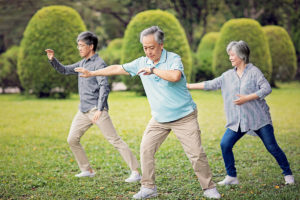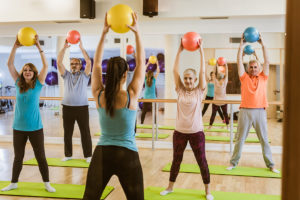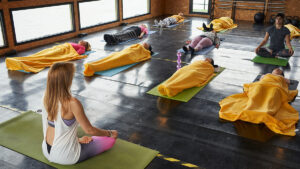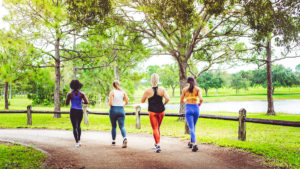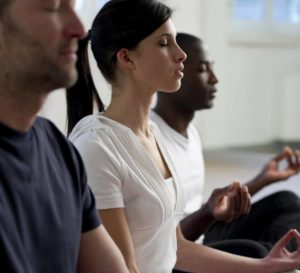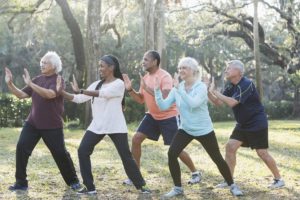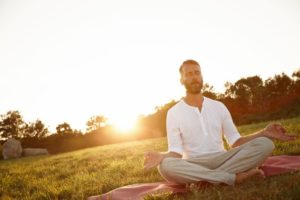Mindfulness & Meditation
The Renaissance of Mental Wellness
In recent years, mental wellness has profoundly transformed from an afterthought in the fitness industry to a cornerstone of holistic health programming. This renaissance in mental wellness invites fitness professionals…
New study shows Tai Chi’s power to create structural and functional changes in the brain.
Fitness pros have long understood the benefits of mind-body exercise; now, new research highlights Tai Chi as a particularly effective, non-pharmaceutical strategy that may help clients combat anxiety and stress….
Integrating Exercise into Clinical Mental Health Care
In recent years, the role of exercise in mental health treatment has gained significant attention. Beyond its physical benefits, regular physical activity is now recognized as a valuable component in…
Social Fitness Boosts Your Health
Why Social Connections Matter Humans are wired to connect. When we have strong relationships, we not only feel happier, we actually get healthier.Research shows that people with meaningful social connections…
How to Become a Yoga Teacher in 2025
If you are enthusiastic about yoga and have seen its transformative effect in your own life, it’s natural to want to share that with others. And if you are comfortable in front of a group but also know how to connect one-on-one, teaching yoga may be a perfect fit.
Social Connectedness, Strengthening Bonds, Strengthening Health
The fundamental human need for social connection is as intrinsic as the need for food and shelter. This innate desire to form meaningful relationships profoundly influences overall health and well-being….
The Nature Prescription
It’s easy to feel stressed, distracted, or even disconnected with today’s uncertainties and fast-paced society. But there’s one powerful solution that doesn’t cost anything and is right outside your door:…
Time Spent Outdoors Boosts Health, Fitness, and Well-Being
In an increasingly digital and fast-paced world, the call of the wild is more than poetic—it’s essential to human health. Emerging research shows that spending time outdoors is a profoundly…
A Comprehensive Approach to Lasting Wellness through Holistic Health
In today’s fast-paced world, many individuals seek more than just physical fitness—they crave complete well-being. Holistic health offers a transformative approach that integrates the mind, body, and spirit, helping people…
Exercise and Its Impact on Mental Well-Being
The Impact of Exercise on Mental Well-Being Exercise is widely known for its physical benefits, but its impact on mental well-being is just as significant. Whether it’s a brisk walk,…
Children’s Fitness Levels and Teen Brain Fitness and Mental Health
Higher levels of motor and aerobic fitness in childhood are linked with better cognitive performance and mental health in adolescence, as reported in Sports Medicine (2024). Researchers from University of…
Mindset and Menopause
There’s no arguing about the benefit and importance of physical activity for our health, especially during menopause. And that’s only the starting point: Women transitioning through menopause benefit from a…
Exercise, Life Purpose and Happiness
Exercise, life purpose and happiness are a trio of ideas that enhance each other in meaningful ways. While your clients might not agree about the happiness part when they’re in the middle of a set of burpees, linking all the beyond-the-biceps benefits together can provide motivation and greater success.
Meditation Basics
What Is Meditation? Meditation is an approach to training the mind, similar to the way fitness is an approach to training the body. Someone with no knowledge of fitness tools…
Tai Chi Is Good for Older Adults
Why tai chi? These Chinese movement patterns have been around for centuries. In recent years, study after study has proven their benefits—particularly for older exercisers—yet most fitness professionals seem to…
Turn Up Mindful Exercise to Turn Down Stress
Research on coronavirus-related stress suggests a link between exercise and stress: those who keep movement up have better mental health outcomes.
Growth in Mind-Body Therapies During the Pandemic
Mindfulness meditation and yoga classes have seen explosive growth since the onset of the pandemic, according to a report from USC.
HELP! I Can’t Meditate… I’ve Tried
It’s easy to understand how some folks can believe that statement to be true. It’s a lot like how some say, “I can’t exercise. I’m uncoordinated.” Or, “I can’t do yoga. My muscles are too tight.” It makes sense that when you believe there is only one way to accomplish something, it’s easy to feel defeated.
New Mindful Outdoor Leadership Program
As green exercise and the health benefits of spending time in nature gain more prominence in popular and scientific news, the Kripalu Center for Yoga & Health in Stockbridge, Massachusetts, is introducing a Mindful Outdoor Leadership Program in October.
The curriculum includes elements of forest bathing, Ayurveda, yoga, outdoor skills, and research related to nature’s health benefits.
New Review Determines Weight Management Tool
Mindfulness practices such as meditation and conscious eating techniques may offer secrets to losing weight and keeping it off, say researchers from Montreal’s McGill University.
Noting some inconsistencies in prior findings, the researchers undertook a comprehensive analysis of 19 mindfulness and lifestyle modification studies that included 1,160 subjects. Here’s some of what the scientists learned from their investigation:

